|
Listen to this article
|
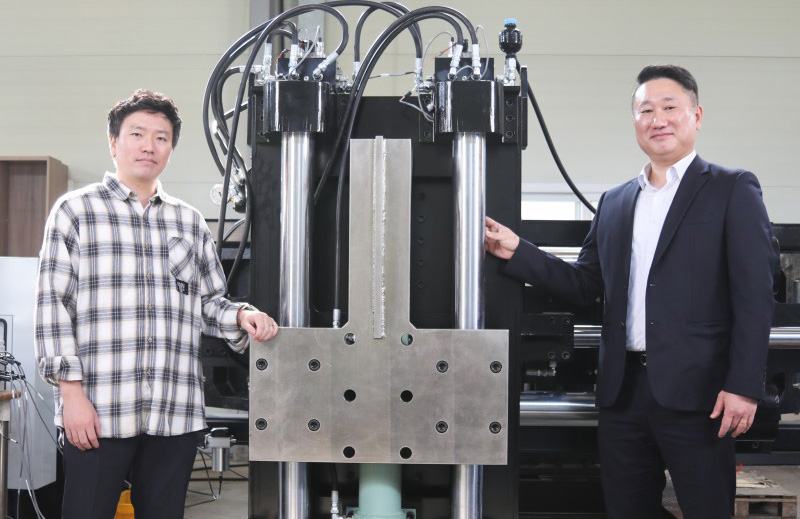
Principal researcher Dr. Yongjin Kim (right) and senior researcher Dr. Young-ki Kim (left) from the Department of Reliability at KIMM, developed an automated mooring system. | Source: the Korea Institute of Machinery and Materials
The Korea Institute of Machinery and Materials, or KIMM, has developed an automated mooring system to enhance the safety and efficiency of docking operations for autonomous vessels. The institute designed the system to overcome the limitations of conventional wire-based mooring methods. KIMM said it expects the innovation to be commercially available by 2025.
“This automated mooring system represents a key advancement in the safe docking of autonomous vessels and will play a pivotal role in the development of smart port infrastructure,” stated Dr. Yongjin Kim, principal researcher in the Department of Reliability at KIMM. “We expect this solution to set a new standard in operational safety and efficiency across the marine industry.”
The Korea Institute of Machinery and Materials is a non-profit government-funded research institute under the Ministry of Science and Information and Communication Technology. Since its foundation in 1976, KIMM has contributed to South Korea’s economic growth by researching and developing key technologies in machinery and materials, conducting reliability evaluations, and commercializing products.
KIMM aims to make the mooring process safer, faster
Previously, workers secured vessels to the port manually using thick mooring lines. This method required high tensile strength, depending on the ship’s size and weight. If the wire broke, there was a risk of accidents, and the manual mooring process demanded substantial manpower and time.
KIMM said its automated mooring system directly addresses these challenges. It uses vacuum suction pads for secure attachment and a flexible, four degree-of-freedom hydraulic system for automated control.
The new technology can streamline the mooring process, increasing both speed and accuracy while reducing accident risks and labor needs, according to the researchers.
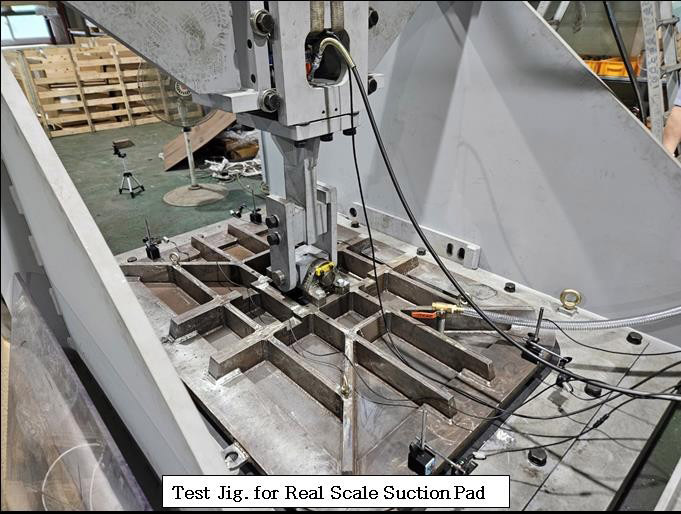
The actual Fixture for quantitative evaluation of suction force. Source: KIMM
Korean team receives recognition, prepares for commercialization
Dr. Yongjin Kim led the team at KIMM under President Seog-Hyeon Ryu. Dr. Young-ki Kim served as a senior researcher.
The institute‘s project was conducted under the “Development of Smart Port-Autonomous Ship linkage Technology” initiative, supported by Korea’s Ministry of Oceans and Fisheries. For its innovation and impact, the technology has been recognized by the Korea Federation of Mechanical Engineering Societies as one of “Korea’s Top 10 Mechanical Technologies of the Year.”
The final performance will be verified at sea in 2025, after which the technology development will be completed, including efforts to commercialize the system.
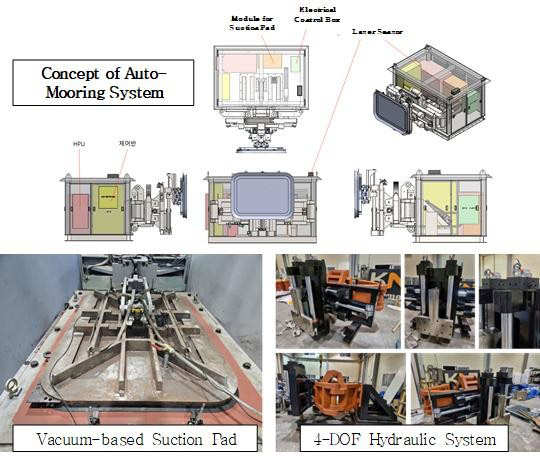
The automated ship-mooring platform, from concept to manufactured product. Source: KIMM




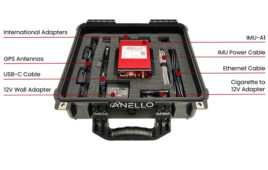

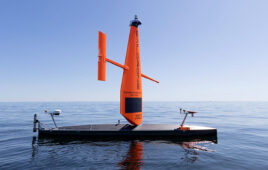
Tell Us What You Think!